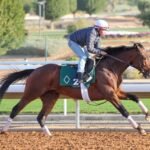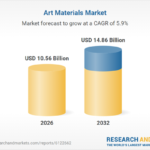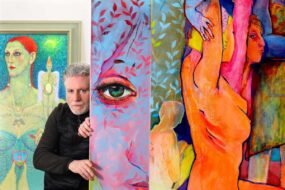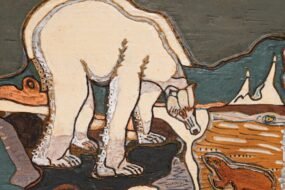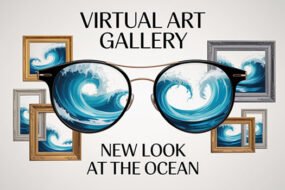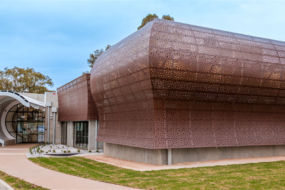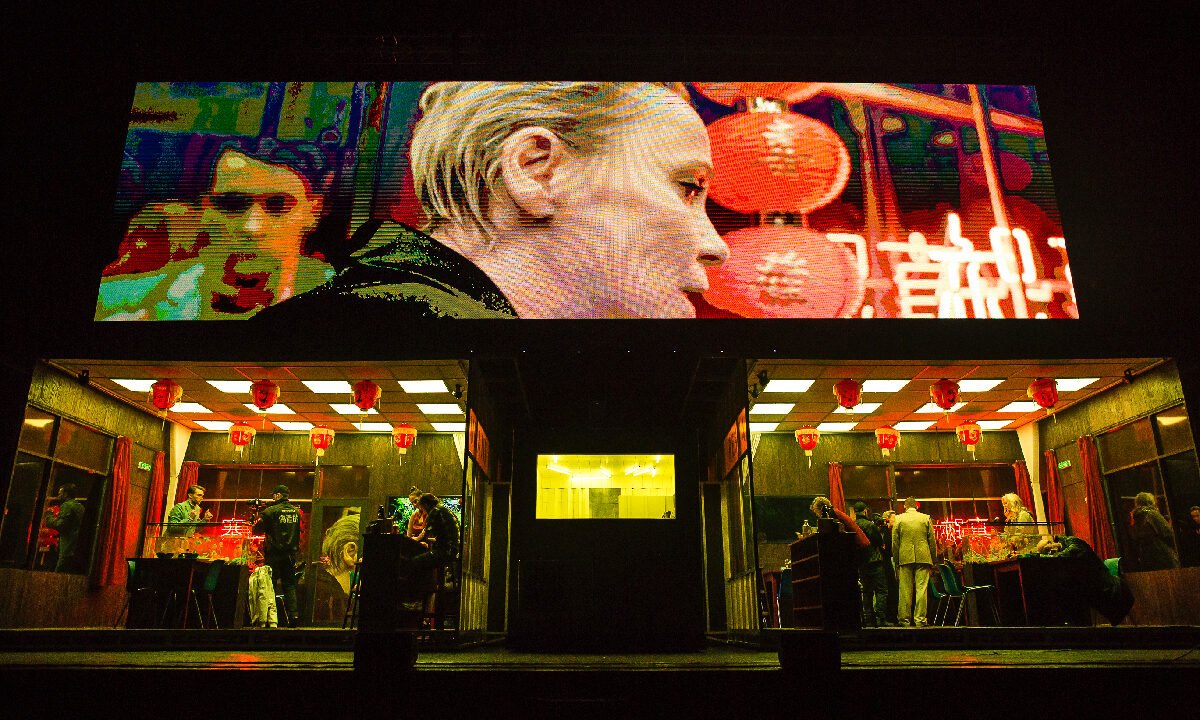
| Updated:
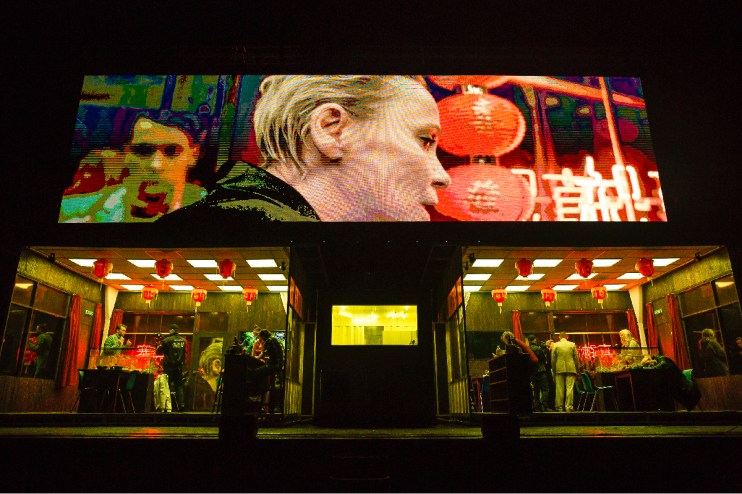
Rohtko at the Barbican | ★★★★★
Rohtko is one of the most astonishing pieces of work I’ve seen on a London stage. Created by Polish director Łukasz Twarkowski, it’s a genre-defying mash up of theatre, live cinema, installation art, dance and techno.
The Barbican stage is filled with an ever-shifting series of sets built inside boxes, which are wheeled around, joining and uncoupling to create restaurants and kitchens and art galleries. Giant screens bisect the space, onto which live video footage is beamed. Much of Twarkowski’s previous work has been traditionally “immersive”, with the audience allowed to roam through the space; this is a seated production but elements of that spirit remain. Depending on where you’re sitting, you’ll have a vantage point on different aspects of the play as it unspools over its languorous four-hour running time.
It takes as its starting point the 2004 sale of a painting by Mark Rothko – the play’s title is deliberately misspelled – for some $8.5m, which was, 15 years later, discovered to be a forgery. Twarkowski uses this tale of greed and corruption to probe the fundamental questions about art: what is it? Who decides what it’s worth? Can it really be ‘owned’? Did the 15 years of joy the painting brought its owners count for nothing, or did they essentially own a real Rothko up until the moment it was revealed as a forgery?
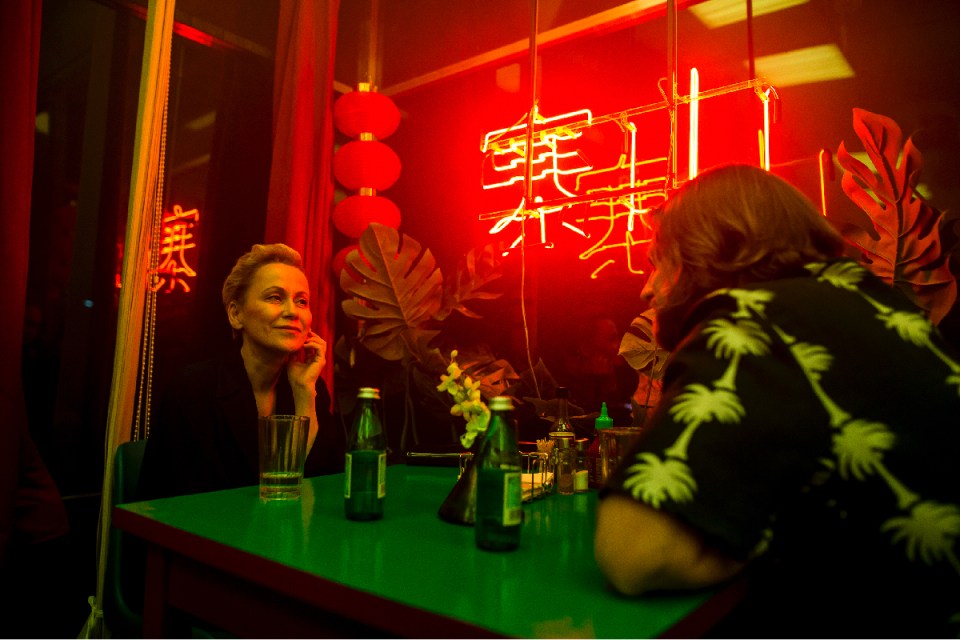
What starts as an abstract tour of contemporary art history becomes a cutting satire on an art world that declares a near-perfect forgery worthless while flogging intangible NFTs to gullible collectors.
There is no linear narrative to speak of: this sordid, decades-long affair unravels all at once, with the famous Mr Chow restaurant in New York City its red-hot epicentre. An aging Rothko eats in a booth there, battling depression and failing health; the gallery dealer who unwittingly – or so she says – sold the painting meets an industry contact for dinner; the man who bought the painting drowns his sorrows.
We also meet actors who introduce themselves by their real names – or are they? – as they prepare to audition for roles as the characters we see on stage. Everything is mirrored and reflected and replicated, nothing quite what it purports to be. Eventually we see miniature versions of the sets, filled with little CGI versions of the characters, presumably watching even smaller versions of themselves, a mad Alice in Wonderland where the rabbit hole leads to a New York gallery.

Mark Rothko appears as a character in the play
Visually, Twarkowski’s production is stunning, filled with texture and detail and swooping flourishes that take your breath away. It’s Wong Kar-wai meets David Lynch, dripping in neon, at once familiar and foreboding. Already known as one of the hottest theatremakers in Europe, there are shades of other former infant terribles of the theatre industry in Twarkowski’s work: the brash swagger of Ivo van Hove, the OTT showmanship of Jamie Lloyd. There’s also a whiff of British theatre company Complicité, with its taut abstractions and unwillingness to sacrifice artistic merit for audience comfort.
And at four hours, you can expect a little discomfort. Twarkowski is in no hurry to reach his conclusions. Some scenes are deliberately stretched to breaking point: one featuring an unmade bed – this play is filled with references to contemporary art – feels like you’re watching the aging artist’s mental collapse in real-time (it reminded me of the scene in Twin Peaks: The Return in which a character sweeps a floor for three minutes).
But boy is it worth it. Twarkowski throws everything at the wall and virtually all of it sticks. The result is darkly funny, frequently unsettling and utterly gripping. Rohtko is like nothing you’ve seen before and marks Twarkowski as a director to follow next time he ventures to these shores.
• Rohtko is on until 5 October at Barbican


